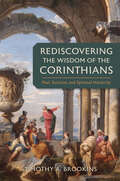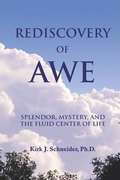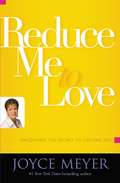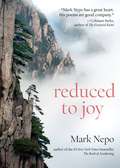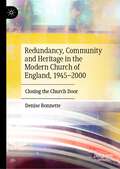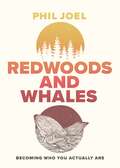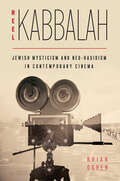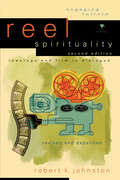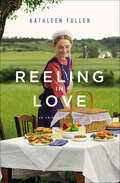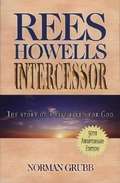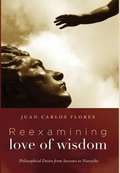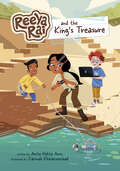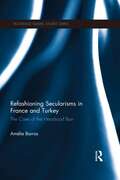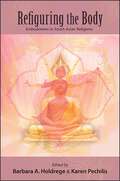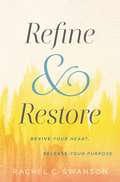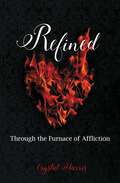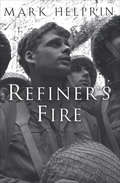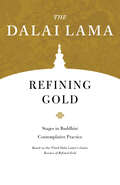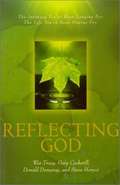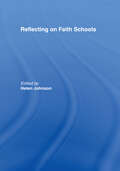- Table View
- List View
Rediscovering the Wisdom of the Corinthians: Paul, Stoicism, and Spiritual Hierarchy
by Timothy A. BrookinsA bold new reading of 1 Corinthians in light of Greco-Roman philosophy The First Letter to the Corinthians begins with an admonishment of the church over their internal division and reliance on human wisdom. What exactly occasioned Paul&’s advice has perennially troubled New Testament scholars. Many scholars have asserted that Paul disapproved of the Corinthians&’ infatuation with rhetoric. Yet careful exegesis of the epistle problematizes this consensus. Timothy A. Brookins unsettles common assumptions about the Corinthian conflict in this innovative monograph. His close reading of 1 Corinthians 1–4 presents evidence that the Corinthian problem had roots in Stoicism. The wisdom Paul alludes to is not sophistry, but a Stoic-inspired understanding of natural hierarchy, in which the wise put themselves above believers they considered spiritually underdeveloped. Moreover, Paul&’s followers saw themselves as a philosophical school in rivalry with other Christians, engendering divisions in the church. Combining scriptural exegesis and investigation of Greco-Roman philosophical culture, Brookins reconstructs the social sphere of Corinth that Paul addresses in his letter. His masterful analysis provides much needed clarity on the context of a major epistle and on Pauline theology more broadly.
Rediscovery Of Awe: Splendor, Mystery And The Fluid Center Of Life
by Kirk SchneiderRediscovery of Awe offers a potential bridge between two ostensible adversaries today: science and religion (also conceived as relativism vs. absolutism, atheism vs. theism, and postmodernity vs. fundamentalism). At its core, Rediscovery of Awe is a practical, psychological translation of an emerging spiritual transformation—a humanistic spirituality. It presents a provocative, and revolutionary, vision. The aim of the book is to revive a sense of awe—the humility and wonder, thrill and anxiety, splendor and mystery of living—in self, society, and spirit. It is an attempt to revive the capacity to be moved. Rediscovery of Awe promotes a new relation to life, and illustrates this relation over a broad range: from child-raising to education to the workplace, and from religion to politics and ethics. Set against our awe-deprived times, in which we tend to favor either a high tech, consumerist mentality or, contrastingly, a dogmatic, fundamentalist orientation, it presents a dynamic and rejuvenating alternative.
Redo Your Room
by Editors of Faithgirlz! Girls' Life MagWhether you’re looking for an all-out room redo or a few new tricks to brighten up your space, Faithgirlz! has tons easy how-tos and quick DIYs that'll morph your room into a true expression of y-o-u. Give your walls a burst of color (even without a bucket of paint!) and turn your fave pics and keepsakes into inspiring art. These floor-to-ceiling secrets help nix those piles of clothes decorating your space in favor of awesome add-ons, like mini murals and a magical ribbon chandelier (psst: we won't tell anyone it took you a half hour to whip up).Redo Your Room is packed with cute and crafty ways to add pop to your domain. You'll learn how to make even the tiniest spaces into pretty places to sleep 'n' study, and clever ways to keep it all looking adorable. And the best part? You can make over your bedroom without going broke.
Redrawing the Map of Early Modern English Catholicism
by Lowell GallagherThe tumultuous climate of early modern England had a profound effect on its Catholic population's domestic life, social customs, literary inventions, and political arguments. Redrawing the Map of Early Modern English Catholicism explores the broad spectrum of the early modern English Catholic experience, presenting fresh and often startling assessments of the most problematic topics in post-Reformation English Catholicism. The contributors to this volume - all leading or rising scholars of early modern studies - conceptualize English Catholicism as a hazardous series of contested territories divided by shifting boundaries, requiring Catholics to navigate with vigilance and diplomacy their status as 'insiders' or 'outsiders.' This collection also presents new ways to understand the connections between reformist and Catholic inflections in the emerging canon of English poetry, despite the eventual marginalization of Catholic poets in English literary history. Redrawing the Map of Early Modern English Catholicism ably demonstrates the profoundly experimental as well as recuperative character of early modern English Catholicism.
Reduce Me to Love: Unlocking the Secret to Lasting Joy
by Joyce MeyerMeyers dynamic insights reveal the life-transforming power of accepting and giving away Gods love. With her finger on the pulse of todays believer, Meyer offers a spiritual wake-up call with her timely assessment of peoples need for love.
Reduced to Joy
by Mark NepoMark Nepo is emerging as one of the truly significant writers and thinkers of today. Nepo has a singular way of distilling great truths down to their essence. Moreover, during his cancer journey, Nepo relied on the power of expression and the writing process to keep him tethered to life. In Reduced to Joy, Mark Nepo explores the places where pain and joy are stitched to resilience, uncovering them with deep wisdom, poetic passages and personal revelations. Nepo reminds us all of the secret and sacred places within, forgotten in the noise and chatter of our busy distracted 21st Century lives. Reduced to Joy is a lesson in stillness, in standing in the mystery and, above all, in the work of love.
Reducing the Storm to a Whisper
by Patrick J. HowellUnnerving for Father Howell, but a rare and rewarding experience for his readers, who will recognize a healing which followed his free fall into spiritual chaos.
Redundancy, Community and Heritage in the Modern Church of England, 1945–2000: Closing the Church Door
by Denise BonnetteThis book is a reappraisal of Anglican Church redundancy from a cultural perspective. It challenges long-held perceptions about the rationale for church redundancy, particularly secularisation. It argues that redundancy brought to the surface far-reaching social and cultural tensions that remain unresolved to this day, and which the pandemic closure of buildings has reignited.
Redwoods and Whales: Becoming Who You Actually Are
by Phil JoelWho are we . . . really? As depression, addiction, and suicide become more commonplace in today’s culture, it seems we have lost sight of who we actually are. Like a whale on a beach, too many of us are finding ourselves breathing shallow, feeling stranded, and alone. The truth is we can cut free from the things that hold us back if we can catch a clear vision of the true character of God. And, like a mighty redwood tree, we can choose to live healthy lives filled with purpose, rising confidently above the chaos. As we choose to align our hearts and minds with the truth, we will discover that maybe God isn’t exactly who we thought He was -- maybe life with Him is a whole lot bigger and more exciting than we ever imagined. Redwoods and Whales will give you the tools you need to help push aside the things that entangle, and grab hold of the life you were born to live.
Reel Kabbalah: Jewish Mysticism and Neo-Hasidism in Contemporary Cinema
by Brian OgrenReel Kabbalah: Jewish Mysticism and Neo-Hasidism in Contemporary Cinema studies the ways in which fictional film in the first decade of the twenty-first century represents the esoteric Jewish speculative traditions known as Kabbalah and Hasidism. It examines the textual and conceptual traditions behind five important cinematic representations -- Pi (1998), Ushpizin (2004), Bee Season (2005), The Secrets (2007), and A Serious Man (2009) -- and it considers how film both stands in continuity with those traditions and modifies them in the New Age vein of what is known as neo-Kabbalah and neo-Hasidism. Brian Ogren transforms our understanding of reception history by focusing on how cinema has altered perceptions of Jewish mysticism. In showing how the Jewish speculative traditions of Kabbalah and Hasidism have been able to affect mass-consumed cinematic portrayals of ultimate Truth, this book sheds light on the New Age, pop-cultural dialectic of the particular within the universal and of the universal within the particular.
Reel Spirituality: Theology and Film in Dialogue
by Robert K. JohnstonIncreasingly, thinking Christians are examining the influential role that movies play in our cultural dialogue. Reel Spirituality successfully heightens readers' sensitivity to the theological truths and statements about the human condition expressed through modern cinema. This second edition cites 200 new movies and encourages readers to ponder movie themes that permeate our culture as well as motion pictures that have demonstrated power to shape our perceptions of everything from relationships and careers to good and evil. Reel Spirituality is the perfect catalyst for dialogue and discipleship among moviegoers, churchbased study groups, and religious film and arts groups. The second edition cites an additional 200 movies and includes new film photos.
Reeling in Love: An Amish Picnic Story (Amish Picnic Stories)
by Kathleen FullerAn Amish Picnic story by bestselling author Kathleen FullerNina Stoll and Ira Yoder are just friends. Just friends and fishing buddies. Every Saturday afternoon, they have a picnic at their favorite fishing hole and see who can out fish the other. Until Nina starts to wonder if there&’s more.Her plans to share her feelings go awry, and circumstances seem destined to keep Nina and Ira apart. With both Nina and Ira confused and hurting, it&’s going to take courage, some help from the community matchmakers, and a little bit of divine intervention for Nina and Ira to realize they&’re each other's perfect catch.
Rees Howells: Intercessor
by Norman P. GrubbCan one man's prayers change world events? This vivid, inspiring biography tells the story of Rees Howells, a Welsh coal miner, who surrendered himself entirely to God and found the key to prayer that changed the course of many nations and individuals. The author, Norman Grubb, wrote this biography like a novel. While this work is replete with historical and biographical information, reading this biography is often as entertaining and exciting as reading a work of fiction. Though entertaining, this book has more than just entertainment value. Hopefully, by reading this book, people will become encouraged to pray for change like Rees Howells did as they become better equipped with tools to become effective prayer agents. Finally, by studying Rees Howells' life, struggles, and successes, readers might follow his example and develop closer relationships to God and to each other in order to improve the quality of life.
Reexamining Love of Wisdom: Philosophical Desire from Socrates to Nietzsche
by Juan FloresWhat is philosophy? Why does it matter? How have philosophy and its relation to religion and science changed from the ancient to the medieval and modern periods and beyond? What are the central philosophical ideas, from Socrates to Nietzsche? Reexamining Love of Wisdom addresses these questions. It offers a new perspective by organizing the material under the theme of philosophical desire and shows the timeless importance of philosophy understood as the love of wisdom. Flores provides an historical introduction to philosophy suitable for college students that is a resource for more advanced students or scholars interested in the history and nature of philosophy.
Reeya Rai and the King's Treasure (Reeya Rai: Adventurous Inventor)
by Anita Nahta AminWhile staying with relatives in Rajasthan, India, Reeya Rai and her friends are playing a game of cricket when they stumble upon an ancient, water-filled stepwell. Reeya and her friends decide to create a submersible with a camera to explore the stepwell and uncover its secrets. In the watery depths, they discover an ancient door with a mysterious symbol on it. Could this be the key to discovering one of India’s ancient lost treasures? And will they uncover the truth before Dr. Acker and his daughter, Elsie, learn about what they’ve found?
Refashioning Secularisms in France and Turkey: The Case of the Headscarf Ban (Routledge Islamic Studies Series)
by Amelie BarrasOver the past few years, secularism has become an intrinsic component of discussions on religious freedom and religious governance. The question of whether states should restrict the wearing of headscarves and other religious symbols has been particularly critical in guiding this thought process. Refashioning Secularisms in France and Turkey documents how, in both countries, devout women have contested bans on headscarves, pointing to how these are inconsistent with the ‘real’ spirit of secularism. These activists argue that it is possible to be simultaneously secular and religious; to believe in the values conveyed by secularism, while still remaining devoted to their faith. Through this examination, the book highlights how activists locate their claims within the frame of secularism, while at the same time revisiting it to craft a space for their religiosity. Addressing the lacuna in literature on the discourse of devout Muslims affected by these restrictions, this book offers a topical analysis on an understudied dimension of secularism and is a valuable resource for students and researchers with an interest in Religion, Gender Studies, Human Rights and Political Science.
Refiguring the Body: Embodiment in South Asian Religions
by Barbara A. Holdrege; Karen PechilisRefiguring the Body provides a sustained interrogation of categories and models of the body grounded in the distinctive idioms of South Asian religions, particularly Hindu and Buddhist traditions. The contributors engage prevailing theories of the body in the Western academy that derive from philosophy, social theory, and feminist and gender studies. At the same time, they recognize the limitations of applying Western theoretical models as the default epistemological framework for understanding notions of embodiment that derive from non-Western cultures. Divided into three sections, this collection of essays explores material bodies, embodied selves, and perfected forms of embodiment; divine bodies and devotional bodies; and gendered logics defining male and female bodies. The contributors seek to establish theory parity in scholarly investigations and to re-figure body theories by taking seriously the contributions of South Asian discourses to theorizing the body.
Refiguring the Spiritual: Beuys, Barney, Turrell, Goldsworthy (Religion, Culture, and Public Life #9)
by Mark C. TaylorMark C. Taylor provocatively claims that contemporary art has lost its way. With the art market now mirroring the art of finance, many artists create works solely for the purpose of luring investors and inspiring trade among hedge funds and private equity firms. When art is commodified, corporatized, and financialized, it loses its critical edge and is transformed into a financial instrument calculated to maximize profitable returns.Joseph Beuys, Matthew Barney, James Turrell, and Andy Goldsworthy are artists who differ in style, yet they all defy the trends that have diminished art's potential in recent decades. They understand that art is a transformative practice drawing inspiration directly and indirectly from ancient and modern, Eastern and Western forms of spirituality. For Beuys, anthroposophy, alchemy, and shamanism drive his multimedia presentations; for Barney and Goldsworthy, Celtic mythology informs their art; and for Turrell, Quakerism and Hopi myth and ritual shape his vision.Eluding traditional genres and classifications, these artists combine spiritually inspired styles and techniques with material reality, creating works that resist merging space into cyberspace in a way that overwhelms local contexts with global networks. Their art reminds us of life's irreducible materiality and humanity's inescapability of place. For them, art is more than just an object or process—it is a vehicle transforming human awareness through actions echoing religious ritual. By lingering over the extraordinary work of Beuys, Barney, Turrell, and Goldsworthy, Taylor not only creates a novel and personal encounter with their art but also opens a new understanding of overlooked spiritual dimensions in our era.
Refine and Restore: Revive Your Heart, Release Your Purpose
by Rachel C. SwansonIt's time to revive your heart, release your purpose, and have an authentic relationship with God!Women want to live boldly and bravely in their faith, but many feel weighed down by... something. They pretend to live a full life, but wonder why life as a Christian lacks luster. To fill the aches, they feast unknowingly upon consumerism, self-worship, food obsession, seeking love in all the wrong places, and grasping for anything but Jesus.Rachel shows women that in order to renew passion, purpose, and unwavering faith, they must intentionally choose to refine and restore their mind, body, and soul, acknowledging their subtle sins before Jesus.In REFINE AND RESTORE, Rachel shares the process of refining sins out of her life, which separated her from deeper intimacy with God, and restoring her heart back to the truth of who God really is. Through personal stories of confession and conviction (refining moments), readers will discover how Rachel found an authentic, vibrant relationship with God (restored wholeness)-inspiring readers to do the same.
Refined: Through the Furnace of Affliction
by Crystal HarrisFrom drugs and prison to healing and restoration, Harris invites you not only into her life, but also into her thoughts. Reading the motivations behind her actions and the steps that she took—whether for good or for bad—encourages you to reflect carefully on your life and thoughts. With each situation, Harris reveals how the Bible lovingly shows you the best way to act and think. Read Harris&’s compelling story of how God completely overhauled her life. See how God transformed her bleak circumstances and her unhealthy thinking into a renewed perspective about this world and the world to come. Walk in Harris&’s footsteps to experience the miracles that God did in her life and be encouraged to know that He can do the same for you.
Refiner's Fire
by Mark HelprinAn Israeli soldier&’s life flashes before his eyes in this epic tale: &“As if The Odyssey had been updated and rewritten by Dylan Thomas&” (The Listener, UK).In 1947, Marshall Pearl is orphaned at birth aboard an immigrant ship off the coast of Palestine. Brought to America, he grows up a child of the Hudson Valley, determined to see the world in all its beauty and ferocity. His epic journey takes him from Jamaica to Harvard; from Great Plains slaughterhouses to the Mexican desert; and from the sea to the Alps. Marshall is eventually drawn to Israel to confront the circumstance of his birth in a crucible of war, magic, suffering, and grace.We first meet Marshall among the mortally wounded Israeli soldiers who are being transferred to Haifa during the Yom Kippur War. From there we follow Marshall—along with his memories and dreams—as he reconstructs his life, galvanizing strength through all that he has learned, suffered, and hoped.&“Superb...A first-rate odyssey, full of insight and humor and hard-earned truths&”—San Francisco Chronicle
Refiner's Fire
by Sylvia BambolaA thriller steeped in European culture like The Salzburg Connection, Refiner's Fire serves up serious suspense to avid fiction readers. This book's "secret underground society" is not Nazi war criminals, however-it's the persecuted Christian church. Yuri and Alexander Deyneko, separated as teens in postwar times, are reunited thirty-five years later in 1980s Bucharest. Now on separate sides of Nicolae Ceausescu's Iron Curtain, the secret life of one brother, a top army official and clandestine Christian, and the ambition of the other- now the American Ambassador to Romania-puts them on a collision course with each other. Fates hang on an issue of conscience. Great writing propels readers through the plot toward a gripping climax.
Refining Gold: Stages in Buddhist Contemplative Practice (Core Teachings of Dalai Lama #8)
by The Dalai LamaOne of the latest additions to the Core Teachings of the Dalai Lama series, Refining Gold explains, in clear and direct language, foundational instructions for attaining enlightenment.One of the most central set of teachings of the succession of Dalai Lamas since the fifteenth century is the Lam Rim, or Stages of the Path, teachings—in particular those written by the great Tsongkhapa. These teachings are a guide, from start to finish, on how to engage in the transformational Buddhist practices that lead to enlightenment. In this illuminating work, His Holiness the Fourteenth Dalai Lama discusses a short but powerful text by his predecessor, the Third Dalai Lama Sonam Gyatso, who penned a famous commentary on the Lam Rim entitled Essence of Refined Gold. The Dalai Lama speaks directly to the reader—offering spiritual guidance, personal reflections, and scriptural commentary. His sincere approach and lucid style make Refining Gold one of the most accessible introductions to Tibetan Buddhism ever published. This book was previously published under the title The Path to Enlightenment.
Reflecting God
by Steve Harper Wes Tracy Gary Cockerill Donald DemarayBegin the journey toward intimacy with God with this new study celebrating the holy optimism of grace and love. Reflecting God combines the best biblical scholarship of the Wesleyan-Holiness denominations with the opportunity for inner reflection.
Reflecting on Faith Schools: A Contemporary Project and Practice in a Multi-Cultural Society (Spirituality in Education)
by Helen JohnsonProfound changes in society, government policy and the political landscape, as well as cataclysmic events such as 9/11, have greatly altered perceptions of faith schools and their existence now causes more controversy than ever. Taking a reflective practice approach, this study by people working within faith schools and colleges explores the new hot issues surrounding the subject in a sophisticated way. Looking at the supposed secularisation of the West, the nature of the multi-cultural and multi-faith society, the role of women, the spiritual development of children and most of all, the form that the tolerance of religious diversity should take in liberal societies, this book encourages readers to re-examine their assumptions and to consider faith schools as a part of the future of the English schooling system, within a multi-cultural society.This book was previously published as a special issue of The International Journal of Children's Spirituality.
